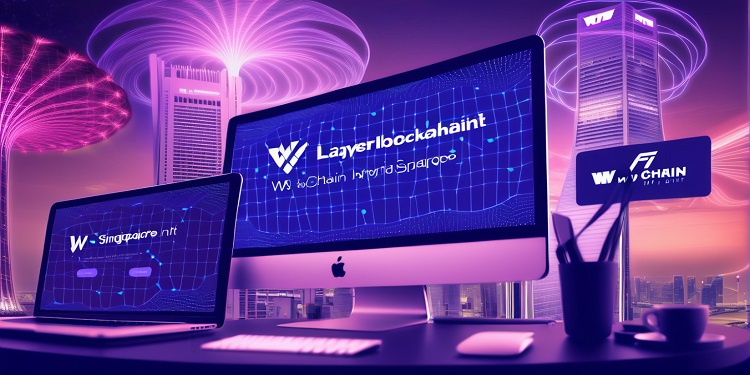Visa is preparing to launch a pilot project in 2025 that will allow banks to tokenize fiat currencies on the Ethereum blockchain. This initiative aims to enhance transaction speed and security for financial institutions. The project marks a significant step in Visa’s ongoing exploration of blockchain technology, which is increasingly gaining traction in the world of finance. Through the Visa Tokenized Asset Platform (VTAP), banks will be able to experiment with issuing fiat-backed tokens, offering a way to bridge traditional banking systems with the digital world.
Tokenization, the process of converting real-world assets into digital representations on a blockchain, has become a prominent tool for financial institutions aiming to streamline operations and improve security. Visa’s new platform, VTAP, is designed to allow banks to issue digital tokens that are backed by fiat currencies. By utilizing Ethereum’s blockchain, the platform aims to increase the efficiency of transactions while ensuring high levels of privacy and security for financial institutions.
The initial phase of the pilot, scheduled for 2025, will be rolled out on Ethereum, one of the most widely used and trusted blockchain networks. Ethereum’s infrastructure offers scalability and reliability, making it an ideal choice for large-scale financial operations. The goal is to enable banks to use blockchain technology to settle trades, issue tokens, and execute transactions more quickly, efficiently, and securely than current systems allow.
Fiat-Backed Tokens as a Bridge Between Traditional and Digital Markets
The use of fiat-backed tokens represents a pivotal development in connecting the worlds of traditional finance and digital markets. Banks participating in Visa’s pilot will have the opportunity to issue tokens that are directly linked to traditional currencies, thereby creating a seamless bridge between digital assets and fiat money. This capability is expected to improve cross-border transactions, increase liquidity, and provide a more secure environment for trading assets such as real estate and debt securities.
One of the platform’s key features is its focus on privacy and security. As financial institutions are required to adhere to strict regulatory standards, VTAP is designed to provide the benefits of blockchain technology while ensuring compliance with existing financial regulations. This focus on privacy will be especially important as banks increasingly look to blockchain as a tool for more efficient transaction processing and asset management.
Visa’s blockchain initiatives are not new. The company has been involved in various tokenization projects aimed at modernizing financial infrastructure. For example, in 2022, Visa collaborated with HSBC and Hang Seng Bank in Hong Kong to explore the use of digital currencies in interbank payments. This project was part of the Hong Kong Monetary Authority’s Digital Hong Kong Dollar initiative, which focused on business-to-business transactions and property payment settlements. Through this partnership, Visa demonstrated the potential of blockchain to facilitate complex financial operations across borders.
In addition to its efforts in Hong Kong, Visa has participated in a number of other blockchain-related initiatives globally. For instance, Visa was selected to join the Central Bank of Brazil’s pilot program for a central bank digital currency. The initiative sought to explore how digital currencies could be integrated into Brazil’s financial ecosystem, improving the efficiency of transactions. Visa also collaborated with Spain’s Banco Bilbao Vizcaya Argentaria (BBVA) to test its Tokenized Asset Platform within a sandbox environment, evaluating how blockchain could be applied to further financial innovation.
Visa’s Broader Blockchain Expansion
Visa’s blockchain-related activities continue to grow, with the company actively expanding its reach into new markets and applications. In September 2023, Latin American cryptocurrency exchange Ripio began a pilot program for a Visa credit card linked to a decentralized finance (DeFi) liquidity pool. This innovative card allows users to access liquidity directly from a DeFi pool, further blurring the lines between traditional financial systems and decentralized technologies. Additionally, Visa partnered with Singapore-based Dtcpay to integrate crypto payments into its global network. The collaboration aims to provide access to over 130 million merchants worldwide, with the ‘dctpay Visa Infinite’ card set to launch soon.
Visa’s venture into blockchain technologies is part of its broader strategy to create global standards for digital asset issuance and usage. The Visa Tokenized Asset Platform is a critical component of this strategy, offering a framework for banks and financial institutions to issue tokens, explore blockchain applications, and participate in the growing digital asset economy. As real-world assets such as real estate and debt securities are increasingly being brought onto blockchain networks, the demand for secure, fiat-backed tokens to facilitate these transactions continues to grow.
With the introduction of VTAP in 2025, Visa is positioning itself at the forefront of blockchain innovation in the financial industry. The platform will allow banks to experiment with blockchain technology in a controlled, secure environment, paving the way for the broader adoption of digital assets in the years to come. Visa’s efforts in this space signal a growing recognition of the transformative potential of blockchain, as well as the company’s commitment to remaining a leader in financial technology innovation.
Through its partnerships and pilot programs around the world, Visa is demonstrating how blockchain can be used to modernize financial infrastructure, improve transaction security, and enable new forms of financial intermediation. The upcoming pilot of VTAP is another step toward realizing the potential of blockchain in global finance, offering a glimpse into the future of faster, more secure, and efficient banking transactions.









